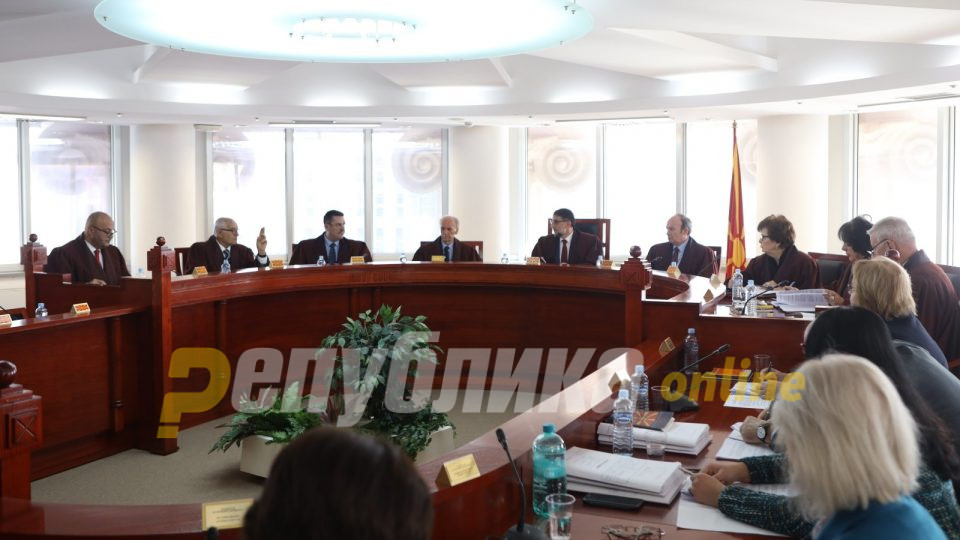At today’s session, the Constitutional Court rejected the request for protection of freedoms and rights submitted by Professor Tanja Karakamiseva in 2019, in which she explained that the Prespa Agreement violated her right to prohibition of discrimination and the right to freedom of thought and expression.

Judge Osman Kadriu, presenting the request at the session, pointed out that the Court may decide on violations of specific freedoms and rights, for which violations under our Constitution provide constitutional judicial protection, but that it is very important that these rights are violated by an individual act or action of a body or institution.
On the basis of individuality, the applicant here refers to the final agreement and in the way it is elaborated, the agreement is not an individual act. The agreement and the actions taken in all phases are not about individual actions that can be more valuable individual rights of individuals, groups of citizens or legal entities, Kadriu explained.
According to him, it is crucial that the final Prespa Agreement with Greece and the actions taken by both countries until the moment of concluding the agreement are not an individual act, and that the Agreement is a general act with a matter of legal and political nature that resolves state interests for the good of all citizens and the whole country, according to which there are no conditions for the Constitutional Court to decide on this request.

Karakamisheva in the request, explained on 15 pages, asked the Constitutional Court to determine that the final Prespa Agreement violates the rights for which the Constitutional Court provides protection and to adopt a temporary measure that will prohibit the performance of all measures, tasks and obligations that arise from the agreement until the adoption of the final act.





Comments are closed for this post.